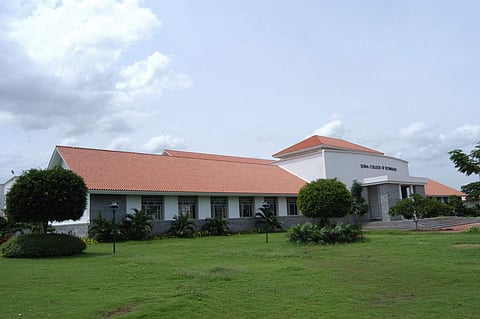

An innovative sustainable building material project by a team of students from Tamil Nadu has won an award at a competition organised by the Entrepreneurship Development and Innovation Institute (EDII), an apex organisation in the field of entrepreneurship education.
The team of civil engineering students from Sona College of Technology won the 'Student Innovators' award for developing the 'Replast Pavers and Building Blocks' project.
Through this project, the team led by Aravinda Kumar Vasu and teammates Ragav S and Kirubakaran S solved the problem of discarded plastic filling up waste dumps on the city outskirts while reducing demand for natural resources like natural sand, water and raw materials for cement, the institute said in a statement on Sunday.
Availability of salt-free water for making and curing building products is becoming a major issue, affecting the life of new structures.
The 'Replast Pavers and Building Blocks', built without using water and cement, use Industrial by-products like steel slag, copper slag, fly-ash, and waste plastics to replace cement.
"The low-cost, good-quality Replast building products do not compromise the mechanical properties and durability. This alternate sustainable product could change the face of the construction industry," the institute said.
The process involves collection of waste plastics, shredding and heating.
Molten plastic mixed with the steel slag or fly-ash along with certain admixture is then placed in the paver and brick moulds. As plastic acts as the binding material, it reduces the gaps and improves the bonding strength between aggregates.
After cooling, it has to be taken out of the moulds.
"In this product, molten plastics act as binding agents as well as a filler with other materials. Hence, there is no need for water for making and curing the products," the institute noted.
